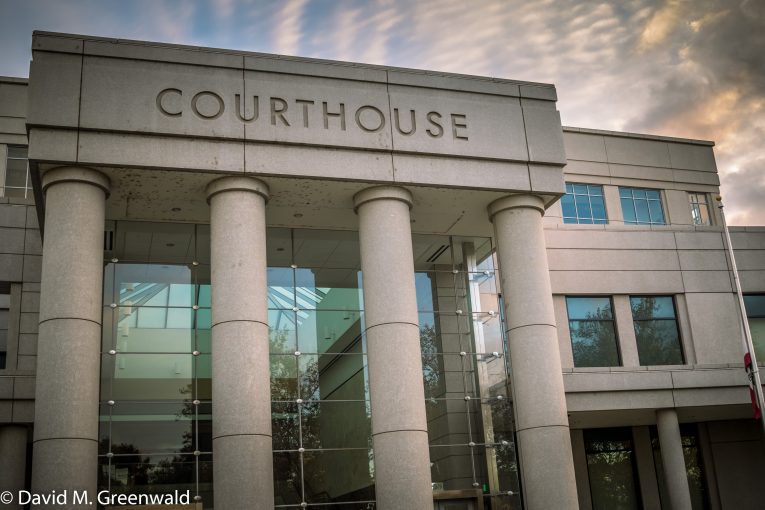
 By Danielle Eden C. Silva
By Danielle Eden C. Silva
A clinical psychologist on child and adolescent psychology testified in a child sexual abuse case as an expert, shedding light on the behavior of abused children.
Mr. Margarito Alvarez has been charged with several counts of lewd and lascivious acts with a child under the age of fourteen, including by force. A clinical psychologist testified in this case on behalf of the prosecution, being qualified by the court as an expert.
Dr. Blake Carmichael works at the UC Davis Children’s Hospital as a clinical psychologist and specializes in child and adolescent psychology, which includes providing evaluation and treatment for children who have suffered child abuse. He also is a supervisor and a volunteer faculty member. He had not been shown any information on Mr. Alvarez’s case.
The court deemed Dr. Carmichael to be an expert in Child Sexual Abuse Accommodation Syndrome, the child psychology of memory and suggestibility, and the behavior of child sexual abuse victims.
The doctor explained CSAAS was introduced in 1983 to educate people on how children may be sexually abused and how these children may act. The 1983 paper was to show individuals aged two and a half to 18 years old may act in unexpected ways if they suffer sexual abuse, noting factors that may be seen but are not to be treated as a checklist or requirement. These reactions may differ given age, sophistication, and relationships.
Dr. Carmichael shared that children may be expected to act in a certain way. He noted that even if children are educated on inappropriate touching, only 20 percent of children tell right away. Another 60-70 percent don’t inform an adult within a year. Some children don’t tell until after they’re 18. In addition, he noted that most juvenile sexual abuse victims had a relationship with the perpetrator beforehand.
CSAAS studied this relationship between the perpetrator and the victim, noting how children may continue to be around the  perpetrator despite inappropriate touching or other forms of sexual abuse. Grooming is a purposeful process of exposing a child to physical touch to lead to inappropriate touching, and commonly leads to sexual abuse, but Dr. Carmichael noted that common physical touch, such as patting someone on the back, can be difficult to distinguish as grooming or as innocent touching. This inability to distinguish can be further seen in how children may react to sexual abuse because of their relationships with their perpetrators.
perpetrator despite inappropriate touching or other forms of sexual abuse. Grooming is a purposeful process of exposing a child to physical touch to lead to inappropriate touching, and commonly leads to sexual abuse, but Dr. Carmichael noted that common physical touch, such as patting someone on the back, can be difficult to distinguish as grooming or as innocent touching. This inability to distinguish can be further seen in how children may react to sexual abuse because of their relationships with their perpetrators.
Dr. Carmichael shared that CSAAS contained five components that were found from studying abused children: secrecy, helplessness, entrapment and accommodations, disclosure and retraction. These are related to child sexual abuse reactions but are not definitively found in all children. He stated this list should not be seen as a checklist but as possible factors. These five components focused on children being considered as vulnerable to an older perpetrator and not wanting to get the perpetrator in trouble or cause issues in their environment. As a result, children may cope by avoiding or ignoring the issue or, if they disclose it, potentially retracting their statement as they see themselves as the cause of the problem.
If children do disclose what happened, the doctor explained that interviewed children may need both open-ended and leading questions to talk about the topic. While a child may not give a linear account or may miss peripheral details like when something happened or specific details, the “core details” or overall defining elements of the memory are still present. Leading questions could be associated with planting fake memories, or believing things happened that didn’t. He noted adolescents are usually resistant to being told of fake memories of sexual abuse since they are more adult, while preschoolers may be more suggestible to those memories. Fake allegations, on the other hand, relate more to a sexual abuse claim being made and ending up to be false.
In cross-examination, Dr. Carmichael shared he had testified 10 times on behalf of a defendant out of his 160 to 180 times in court. He noted he never testified for the defendant in an adult criminal court.
Dr. Carmichael clarified that correlation was not the same as causality. While two factors may be related, such as the number of drownings at a beach increasing while the number of ice cream sales increases, those two factors are not seen to be directly the cause of one another. He elaborated that the increasing ice cream sales could be from more people going to the beach because it is hotter, thus leading to more people on the beach which could lead to more drownings.
About a person remembering events, the doctor also shared that memories are subjective. People may focus on different details because they pay attention to different things. For instance, if an earthquake happened, two people in the same room may remember different things: one may note the time while the other will note where they are in the room. The small details may be different but the overall event still occurred. Dr. Carmichael did share that kids can be influenced by other children and that he didn’t handle the investigations – Child Protective Services does.
The morning session concluded, with the testimony of Dr. Carmichael to continue in the afternoon.
